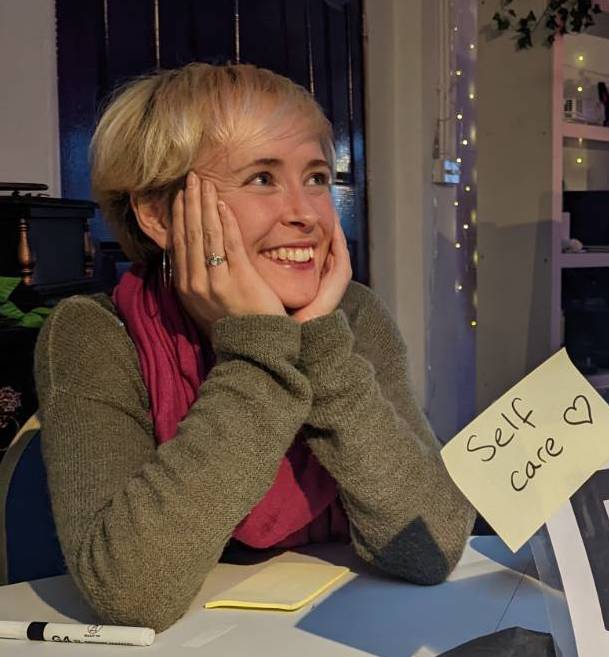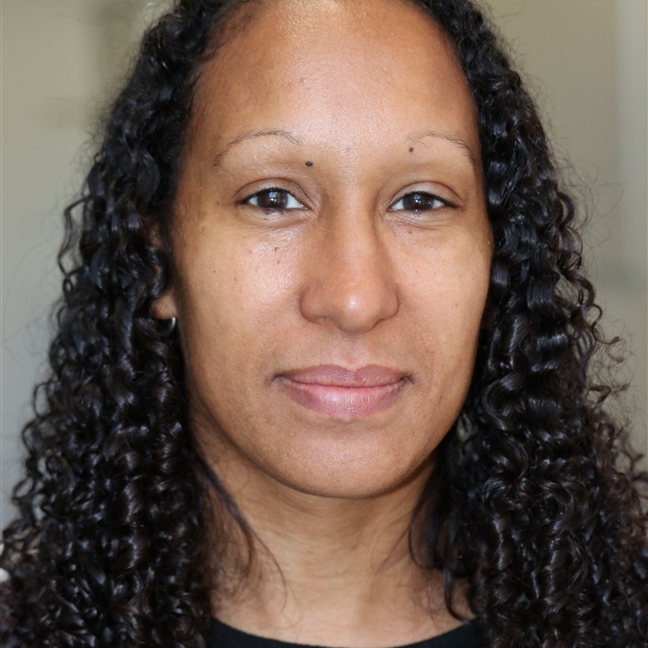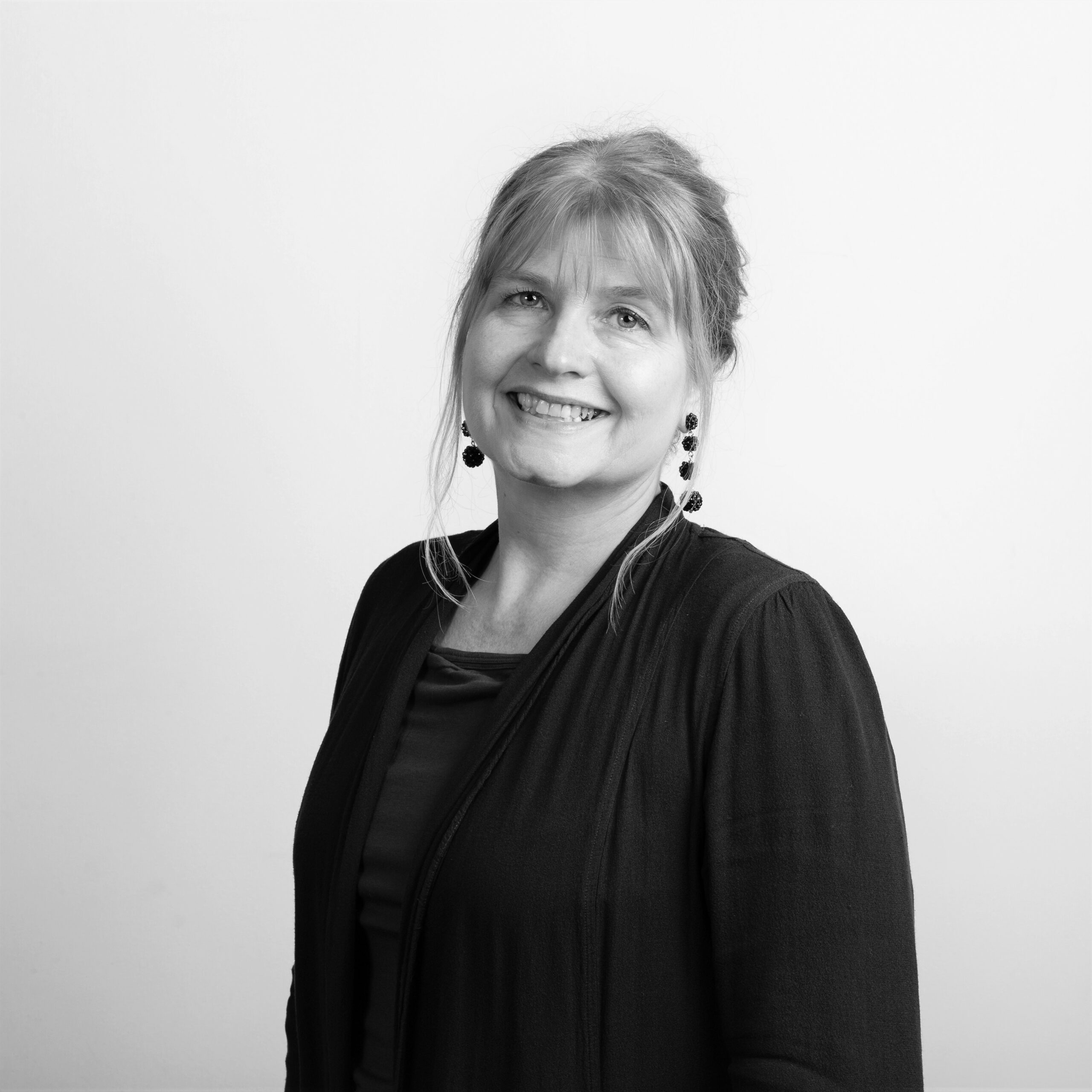Find out what leaders think of the results and what they mean for the charity sector.

Hugh Milward, VP External Affairs, Microsoft UK
Charities support vital services in the community yet are increasingly tasked to deliver far more with far less.
Generative AI has great potential to help charities respond to this increasing pressure and maximise their impact. It has the game-changing ability to cut out the digital drudgery that holds us all back and give us more time to do the work that really matters. By automating tasks such as data entry, donor management, grant writing, marketing and communications, and so much more, AI frees up valuable time for staff and volunteers, allowing them to focus on strategic initiatives and direct service delivery.
Charities have so much to gain, as this year’s Charity Digital Skills report finds. 65% of charities either strongly agree or agree that AI developments are relevant to them, and 61% of charities are currently using AI in their day-to-day work or operations.
But this year’s report shows us a sector at a crossroads. While intentions and ambitions are high, there are barriers that threaten meaningful, long-term adoption. The biggest barrier charities face to moving forwards with AI is a lack of technical skills and expertise, cited by 50% of charities. This is a sector-wide challenge, shared by both large (55%) and small (48%) charities, and is compounded by a lack of training to upskill, identified as the second biggest barrier by more than a third of charities (34%).
We all risk charities not fulfilling their full potential if they are not properly supported. That means investing in digital and data skills, supporting the leadership and infrastructure that will drive the sector forward, and creating safe forums for charities to test and experiment with technologies that could transform their ability to make a difference in our communities.In the journey of AI transformation, charities cannot go it alone. Microsoft has long been committed to empowering charities with digital and AI capabilities, and we are proud to have partnered with Zoe Amar to shed new light on the job to be done for the journey ahead. If you would like to access our free Generative AI skilling resources please visit https://www.aka.ms/aiskills.

Rhodri Jones, Head of Systems, WCVA
We are pleased once again to see this year’s Charity Skills report especially that 10% of the respondents are based in Wales. For organisations in Wales capacity and headspace for organisational development is a key challenge with almost three quarters (73%) of the Welsh organisations that responded saying this. This is linked to funding constraints where unfortunately other day to day operating costs are being prioritised.
However, there is also some good news, with 79% are delivering services built on digital tools and over a half (56%) of the Welsh organisations have a digital strategy in place. It surprised me to see that 62% are currently using AI in their day-to-day work or operations although it’s good to see organisations embrace new technologies.
The wider landscape disappointedly though shows a lack of Trustees digital skills with 62% saying that their trustees’ digital skills are low or could improve. Also, only 32% of charities say they are undertaking user research to inform their service design, this is a critical area to get right when designing digital services. Data remains a high priority for 1 in 4 charities and overall and as usual cybersecurity features with three quarters (74%) of all organisations saying that they are good or excellent, given the tensions worldwide it would be nice to see this figure over 90% next year. Never happy we would like to see even more responses form Wales next year!

Nikki Bell, Co-Founder & Director, Fundraising Everywhere
I’m so glad that the Charity Digital Skills Report 2024 is building on the responses from minoritised communities, allowing for their voices to be heard in a space that can feel exclusionary.
What’s exciting is that digital is more of a priority for many charities, however the lack of digital strategy is still an area of concern. Couple that with the challenge of funding, upskilling teams and the impact of AI makes for a bumpy road ahead, which will need prioritised decision making and innovation for organisations to get through the next few years.

Tree Hall, Chief Executive Officer, Charity IT Leaders
I have tracked the results of the Charity Digital Skills surveys for several years now, as the insights it provides are important benchmarks for the sector, and highlight the areas we all need to be focusing on in order to enable positive change.
This year’s report shows the continued impact of the cost of living crisis and the increasingly fractured and uncertain global environment we live in, yet despite this, there are some positives to take from the Report, not least that ¾ of charities report having made progress with digital in the last twelve months, and that 1 in 4 charities are prioritising digital and data in the coming year. Almost half of charities report that their IT provision is good or excellent, and 95% of charities say their digital services are inclusive to some extent.
AI adoption is happening across a high percentage of charities, ranging from informal use to organisation-wide adoption. Very positively, charities are asking questions about potential bias and discrimination, factual accuracy and data privacy and AI, and I believe this rigour and questioning is a vital component of any AI strategy.
So yes, there are positives. But what concerns me is the high number of charities who are still reporting digital skills gaps in their leadership teams and Boards. Who are still struggling to secure investment in IT and infrastructure, and who are unable to progress their digital strategies because of financial limitations and lack of capacity. A third of charities say they don’t have the skills to resource digital effectively and this is holding them back.
Lack of resources, lack of capacity, lack of funding and lack of skills are the barriers that keep holding the sector back, and as always, it is the smaller charities who will be impacted the most by these obstacles.
It feels as if we need to change the way we address these barriers if we are to effectively break down these blockers. We need a change in the way funders provide financial support so that infrastructure and full cost recovery become the norm. Crucially, we need the big players in the sector to be doing more to support the small organisations, to help in addressing skills shortages, capacity issues and lack of training.
Collectively, we have the means to address these barriers, and I hope that we can use the findings of this important annual survey to leverage the changes that will benefit the entire sector.

Jonathan Chevallier, CEO, Charity Digital
It’s fantastic to see the continued development of the Charity Digital Skills Report and the invaluable insights it is able to provide.
With the growing prominence of AI it’s heartening to see how many charities are now using the technology. However funding gaps persist and these are limiting the achievement of the full potential of these and other digital tools.
Leadership remains a concern for charity staff, as highlighted for the sixth consecutive year. The importance of this has been underlined in our experience at Charity Digital. We have found mentoring of senior leaders plays a pivotal role in driving significant progress in digital strategy development and implementation. More support is needed for such approaches.
Additionally, the report underscores the ongoing importance of digital inclusion. While progress is being made, there’s still work to be done to ensure that all groups receive the necessary support. It’s important that we collectively continue to champion this easily overlooked topic.

Ellie Hale, Producer, Catalyst
This year’s report shows that the sector’s approach to digital is exacerbating inequalities. This isn’t surprising as it occurs across all sectors in society. However, these findings seem incongruent with the sector’s aspirations and commitment to addressing the issues around diversity, equity and inclusion (DEI):
- 41% of Black led charities struggle to find a funder who will support a digital project, compared to 21% of the main sample and 25% of small charities
- Only 18% of charities felt it was very important that digital suppliers involve people with lived experience – less than 1 in 5
- Only 15% of services are developed by diverse teams
- 30% are not doing user research with diverse groups
- Only 25% of digital services were informed by user research from diverse communities ‘to a great extent’ (a reduction from 28% last year)
- Similarly, just over a fifth of all digital services are accessible ‘to a great extent’ (which has dropped from 28% to 23% since last year)
- Only 33% of charities rate their digital services as highly inclusive
- Only 52% feel a commitment to diversity and inclusion was important when choosing digital suppliers
- Only 15% monitor diversity and inclusion extensively, and 31% are not doing this at all.
The data tells us that small charities struggle with digital the most as they have the least resources and capacity. These are also the organisations most typically led by people with lived experience or from marginalised groups. Faced with a cost of living squeeze and misaligned funding, there is some way to go if the sector is to truly live its values in its digital work. But the good news is there are opportunities to change this.
Organisations working with marginalised groups, especially those tackling racial injustice and supporting older people, are prioritising digital inclusion the most. Funders could help them reduce the digital divide and empower the communities they work with. For the third of charities not yet engaging with data, or using it to inform decision making, they can think about data in a decolonial way from the start. And it’s great to see some organisations co-designing digital services with users. But we need to ask who is being left out? Those not yet embarking on user research (68%) also have a chance to ensure that when they do, it is done with diverse groups and in a non-extractive way, with principles like shared value in mind. This needs funders’ understanding and support.
This is a chance for all sector organisations to review their priorities around digital and look at how it intersects with their DEI goals. To remember who ultimately the work is for, bring the ‘digital transformation’ and ‘power transformation’ agendas together, and in doing so, stop further entrenching and exacerbating inequalities.

John Fitzgerald, Digital Evolution Manager, SCVO
At SCVO, we’ve been working for several years to grow the sector’s digital capacity, so it’s encouraging to see 59% of Scottish respondents are at an ‘Advanced’ stage with digital. This figure aligns with our own experience, where organisations are seeing the
benefits of working consistently to grow their digital capability.
It’s striking that a significant proportion of organisations are seeing challenges around procuring IT infrastructure and reliable connectivity. So many organisations are facing challenges around embedding hybrid working at a time when they’re facing an acute
running costs crisis. We’re working with a range of partners to bring together resources to help smaller organisations get access to digital donations and discounts.
Although a majority of organisations see AI and related tools as relevant to them, only a minority of organisations see developing AI tools as a current priority. We’ve talked to a very large number of organisations about the potential and risks fo AI over
the last 12 months.
We have found that for most organisations, a ‘wait and see’ approach is valid. It allows leadership to understand the strategic value that AI could add, while people working at an operational level get valuable insight and experience into how to use these tools
appropriately. We expect that AI will remain one of our most asked-about topics in the year ahead, and we’re continuing to work with partners like the Scottish AI Alliance to bring together guidance and expertise.

Kye Lockwood, Chief Executive Officer, DataKind UK
This year’s report highlights both continuing trends and interesting insights into the sometimes contradictory challenges faced by charities when thinking about data and digital. On the one hand, nearly half of the charities say that using data to improve services or operations is a priority. At the same time, almost the same proportion need support with collecting, managing, analysing, and storytelling with their data.
This is hardly surprising given that ‘almost 7 out of 10 charities (68%) are struggling to progress digitally due to their finances, headspace and capacity’ and the top challenge of ‘finding funds to invest in our devices, software and infrastructure’ has increased from 49% last year to 60% this year.
This increase in the need for data support echoes our experiences supporting the sector here at DataKind UK. Surely, now is the time for funders to recognise this need and provide the resources charities require for digital and data transformations, or else we risk the sector being left behind. If, as is often the case, funders need charities to collect data that is ultimately about and reflects people’s lives (often on the most challenging or sensitive area of their lives) then it must be imperative to ensure that data use is not extractive, and can actually be used to improve service delivery and operations.
The AI section of the report highlights the myriad of challenges faced by organisations when trying adopt this new technology. On the one hand, about half of charities say they are not engaging with emerging tech trends, and yet on the other hand, 65% think that AI developments are relevant to them; with 61% saying they are currently using AI in their day-to-day work, and 42% looking to use AI in their service delivery.
As a charity that champions responsible data use and practises, the finding that less than a third of charities have concerns about AI (such as data privacy, human rights, and environmental considerations) may demonstrate that we need sector-specific support to understand the use cases and risks of AI, and that charities should be supported to create their own internal guidance.
They may also need support adopting AI solutions that are baked into other products they are already using. It is very positive to note that almost two thirds (62%) want to develop a general understanding of AI and how charities are using it, and 40% are keen to skill up in how to assess AI risks and adopt AI responsibly, which aligns with our service delivery offer here at DataKind UK.

Sarah Ellis, Chief Executive Officer, NCVO
It’s great to see charities of all sizes are using and harnessing the transformative powers of AI, but it’s clear there are still barriers to adoption for some organisations. This research highlights another example of the impact the “Cost of Giving Crisis” is continuing to have on charities. At a time when they are needed most, and when new technology could help increase their impact, stretched finances continue to hold some charities back. AI has the capability to supercharge organisations, and enable them to help support more people, but we know some need support in taking those first steps. We are working to enable more charities and voluntary organisations to start effectively and safely using AI how and where they can and are excited to support more charities to begin their AI journey.

Carol Rudge, Partner & Head of Not for Profit, HW Fisher LLP
I am delighted that the Charity Digital Skills Report continues to shine a light on the ever changing digital landscape. It is encouraging to see that charities are getting to grips with AI tools and technology despite it feeling quite overwhelming at the pace of developments in this space. Charities are using AI to explore with 62% wanting to developing a general understanding and almost half wanting to know about use cases in their services. We are certainly having a lot more discussions about AI at Board level within the sector, which is encouraging although the general conversations always lead to more needing to be done to upskill Boards; this is also representative of what the data shows with the report stating it as being a systemic challenge.
Cyber security is also a big theme and again, it is encouraging to see that overall, three quarters of charities say they are good or excellent. Interestingly, with cyber-attacks on the rise, the sector sadly needs to be considering “when” they are attacked, not “if”. Learnings that we are seeing include cyber-attack rehearsals, these are a good investment to ensure recovery mechanisms are in place. The British Library’s recent incident report is a fantastic resource for charities to be learning from and applying; one for the audit & risk committee to consider.

Hayley Brace, Marketing Director, Pixeled Eggs
The Charity Digital Skills Report has helped the sector and its suppliers shape how it is supported and highlighted the key focus areas. In 2024, we’re seeing a sector in need, one pinched by financial pressures and capacity. Despite these challenges, the sector has made promising progress with digital in areas such as increasing reach and online presence. Given the right funding and expertise, there are encouraging results and opportunities to meet the ongoing digital challenges and priorities. The report shows that 52% of causes want to increase digital fundraising, whilst 39% recognise they are not making the most of their websites to engage their audiences. As the cost-of-living crisis continues, a charity’s website provides an opportunity to build trust and engagement and act as a mechanism to boost fundraising and donations. This is something that Pixeled Eggs is looking forward to supporting through our partnership with the Charity Digital Skills Report.

Vicky Charles, Assistant Director, Strategy Enablement (Technology & Data), Shelter
This report is always so insightful, it can be easy to look inwards and view our own progress with a critical lens, however this report is a good reminder that the challenges we face are also experienced by others in the sector. 635 Charities took part which is fantastic and demonstrates our willingness as a sector to learn and progress.
Engaged and digitally skilled leadership is so important in progressing digital strategy, so it is worrying that there is still such a high level of senior leaders and trustees who need to improve their digital knowledge and skills. It is also important to recognise there are often so many competing priorities as this report identifies with 7”/10 charities struggling to progress digitally due to finances, headspace, and capacity”.
Whilst it is concerning that 60% of charities have identified that their biggest challenge is finding the funds to invest in infrastructure, systems and tools, which is a significant increase from 2023, given the current financial environment, it was not a surprise to read that most are finding it difficult to invest in innovation. The risk is that as a sector, we will not advance in line with emerging technologies such as AI, however, the level of curiosity and interest as to the potential opportunities with AI is positive. This also suggests that there are opportunities for the sector to come together more and to test and learn together.
I really welcomed the diversity, equity and inclusion areas, the insight into both the progress of the charities and the digital services and teams, provides us with a perspective that demands reflection.

Sibylle Harrison, Principal Consultant, Stopgap
“The report’s findings reflect what we’re seeing in the market. While charities are at different stages in their digital transformation, the core need remains the same: the right skills and experience among their staff. At Stopgap, we work with charities to help identify their marketing recruitment needs, from the most senior strategic roles to hands-on operational digital specialists. We empower our clients with insights and training to support them on their journey to building successful digital teams.”
